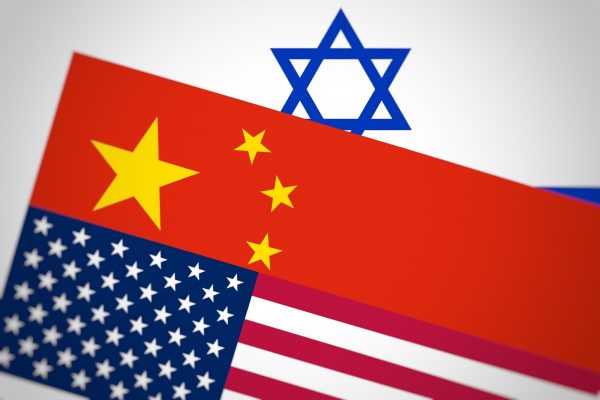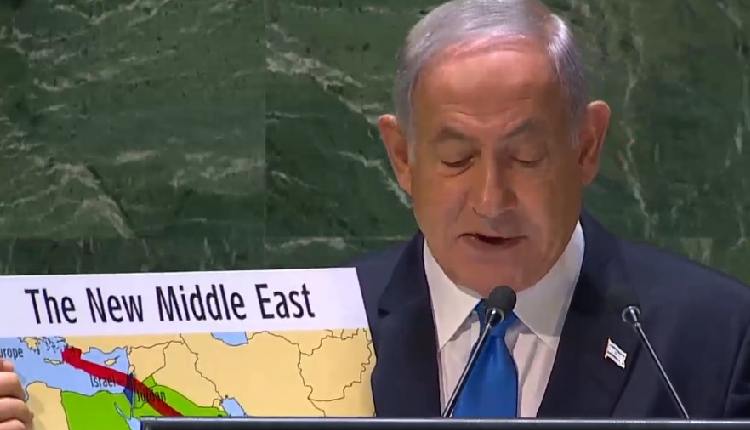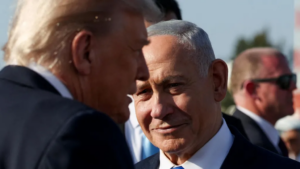
The Diplomat author Mercy Kuo regularly engages subject-matter experts, policy practitioners, and strategic thinkers across the globe for their diverse insights into U.S. Asia policy. This conversation with Dr. Gedaliah Afterman, head of the Asia Policy Program at the Abba Eban Institute for International Diplomacy at the Interdisciplinary Center Herzliya, is the 284th in “The Trans-Pacific View Insight Series.”
Identify Israel’s foreign policy priorities under the new Naftali Bennett- Yair Lapid administration.
The new Bennet-Lapid government’s foreign policy priorities are divided between Israel’s immediate “neighborhood” and broader relationships, including those with the United States and China.
There are both considerable challenges and exciting opportunities in the region. Iran’s growing regional belligerence and continued efforts to develop nuclear weapons, and the ongoing talks over a return to the JCPOA nuclear agreement are high on the agenda. May’s flare-up with Hamas in Gaza has reminded Israelis that the Israeli-Palestinian conflict is far from being resolved.
More positively, the Abraham Accords remain intact, despite the departure of their architects in both the U.S. and Israel, the Gaza conflict, and what could be an imminent return to the Iran nuclear agreement. Foreign Minister Lapid’s trips to the Gulf and Morocco early in his tenure illustrate the government’s interest in capitalizing on the positive momentum in the region.
Enjoying this article? Click here to subscribe for full access. Just $5 a month.
The superpower competition and the growing role of Russia and China in the Middle East are also increasingly on the agenda.
Describe Jerusalem’s strategic objectives in engaging the Biden administration.
Diplomat Brief Weekly Newsletter N Get briefed on the story of the week, and developing stories to watch across the Asia-Pacific. Get the Newsletter
The Bennet-Lapid government is eager to establish its own relationship with Washington and rectify its predecessor’s rift with the Democratic party. Prime Minister Bennet’s upcoming visit to Washington will be an important test for the new government.
Iran’s nuclear ambitions will undoubtedly be high on the agenda. Israel is concerned over what it views as a rushed attempt by the U.S. to revive the JCPOA agreement. On the other hand, Washington is worried that Israel may seek to sabotage such an agreement. The reconstruction of Gaza, the two-state solution, and the Abraham Accords will also be discussed.
Mounting concerns in Washington over China’s growing engagement with Israel are becoming an irritant in the relationship. Prime Minister Bennet will be keen to allay his host’s concerns on this issue.
How might Israel’s new leadership approach the China challenge?
There has been positive momentum in the Israel-China relationship in recent years. China is increasingly interested in Israeli technology, and Chinese companies are involved in national infrastructure projects. Moreover, Israel and China are negotiating an FTA that could be signed as early as late this year.
But despite the positive trend, growing tensions between the United States and China have begun to spill over into China-Israel relations. This could have crucial implications for Israel.
In recent months China has shown that it will not hesitate to attack Israel on the international stage if it suits its interests. During the recent conflict with Hamas, China condemned Israel at the U.N. Security Council and through its official media in order to discredit the United States and debunk its criticism over China’s treatment of its Uyghur minority. In response to Israel’s unprecedented vote in the U.N. Human Rights Council in June criticizing China’s policies in Xinjiang, China is signaling that it could respond severely to Israeli steps seen as “taking sides” in the superpower competition.
How should Jerusalem balance Israel’s strategic position in U.S.-China competition?
Enjoying this article? Click here to subscribe for full access. Just $5 a month.
Israel is increasingly “stuck” between the superpowers, its two largest (single country) trading partners. Israel must develop an informed and proactive strategy to safeguard its alliance with the United States while also expanding its commercial ties with China in non-sensitive sectors.
To improve its ability to withstand the United States’ and China’s pressure, Israel must strengthen its economic, diplomatic, and security relations with key Asian countries. Israel, which since its inception has belonged to the West politically, economically, and culturally, must now learn to conduct itself properly and effectively with the emerging powers in the East.
The Abraham Accords create an opportunity for Israel to leverage its warming relationships in the region and advance relations with key Asian partners, including Japan, South Korea, and ASEAN countries. The new Israeli government must formulate an Asia-Pacific strategy, expanding existing ties between Israel and Asia and developing new ones, to manage the impact of the superpower competition on Israel and ensure its position in this strategic region.
In what areas should Jerusalem and Washington coordinate to manage China’s rising role in the Middle East?
Over the last decade, China has become much more engaged in the Middle East. In addition to its traditional interest in energy and infrastructure, China is becoming a dominant technological power. Moreover, the United States’ seemingly shrinking footprint in the region provides China opportunities to expand its own.
In recent months, a new trend seems to be emerging: The Biden administration applies more pressure on China in Asia, and China responds in the Middle East. The Middle East could become another theater for the superpower competition. As Israel becomes more engaged in the region, particularly in the Gulf, the potential for friction with the United States grows.
To avoid this, Israel and the U.S. must better understand China’s Middle East strategy and its potential impact. As allies, the two countries must maintain an ongoing and candid discussion on U.S. strategic concerns and Israel’s national and regional economic interests. Close coordination on military and sensitive dual-use sectors such as cybersecurity should continue. Israel should make sure to note and address U.S. concerns, while the U.S. should keep in mind that pressuring its Middle East allies, including Israel, to “choose sides” may not serve its interests in the medium-long run.






